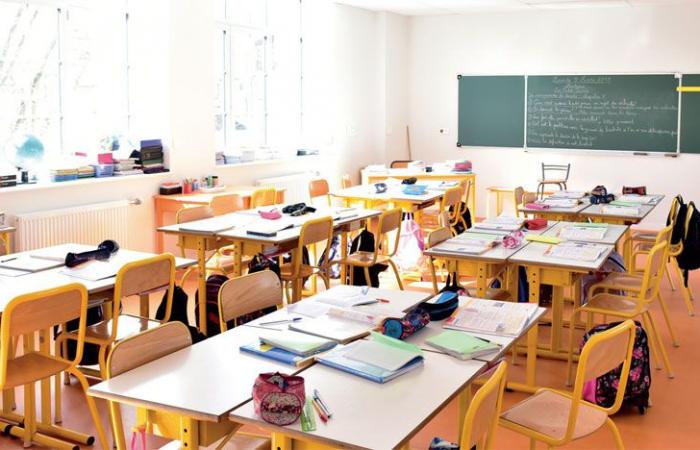JavaScript is disabled! Why you want to do so? Please enable JavaScript in your web browser!
Each school year, parents whose children are enrolled in private schools face several questions, particularly related to the prices set by these schools. Some increase the price annually, others impose exorbitant registration fees without explaining the reasons, a long list of supplies… But do they have the right?
Pour Me Zineb Naciri Bennanilawyer at the Casablanca and Paris bars, “private schools remain free to set their prices in compliance with common law and in particular the law on freedom of prices and competition and the law on consumer protection”. That said, she emphasizes that the contractual relationship between the parent and the school is special given the longevity of the link which can extend over years of schooling.
This is why this lawyer believes that regulations are necessary to “regulate the conditions under which prices can increase throughout the child’s school career”.
-Médias24: Legally, do private schools have the right to increase their prices each year?
-Me Zineb Naciri Bennani: The regulations applicable to private schools govern the standards that must be respected by them, in particular educational, safety and hygiene standards, authorizations, etc. Private schools remain free to set their prices in compliance with common law and in particular the law on freedom of prices and competition and the law on consumer protection.
A standard contract has been established under the leadership of the Ministry of National Education, which is supposed to be a reference document regarding school-family relations. However, it is clear that the relationship between schools and families is a contractual relationship which has particularities.
These are establishments supposed to ensure the education of children, knowing that education is a right for the child and that it is compulsory from the age of 6. The child who joins a structure will generally continue his education there for several years.
Parents have the right to demand predictability of the fees they will have to pay as part of the school curriculum as a whole.
In my opinion, this is a contract of a particular form. Shouldn’t a child who enrolls in school with X amount of tuition fees expect that this amount will not change, or that it will respond to a determined increase index? , since he has to renew his registration every year?
Unlike a service of another nature, when parents cannot cope with this price increase, it is difficult for them to change schools, with all that this has in terms of impact on school life and on the their child’s social life.
A family commits to a school on an entire educational path, particularly when it comes to school groups offering a course from nursery to baccalaureate. They have the right to demand predictability in the prices they will have to pay as part of this educational journey.
Regulations are necessary to regulate the conditions under which prices can increase throughout the child’s school career and to protect the interests of families.
-Does the payment of “registration fees” which are very high have a legal basis?
-There is no legal basis for this. The relationship between families and private schools responds to the principle of freedom of contract. It is the case-by-case examination of the conditions provided for in the contractual relations between schools and families that it is possible to know whether the school imposes unfair clauses on families which can be called into question.
In order to be able to prevent these practices which are not justified, it is necessary for a law to regulate this issue.
-Do these private schools have the right to impose, for example, payment for a term in advance?
-This is entirely possible as long as it isfreely accepted by families and that schools do not give themselves the right not to fulfill their obligations towards the child.
Once again, the consumer protection law aims to ensure balance in the contractual relationships between the consumer and the supplier.
-Can we consider that this type of clause creates an imbalance between the school and families?
-There is a more serious practice which is that of schools which reduce the lunch break which becomes too short for the child to eat at home and which refuse to allow children to bring their packed lunches to school.
Here we can wonder about the recourses available to parents who find themselves forced to pay for canteen service.
As long as there are no specific regulations, it is up to parents to choose a school that respects their rights.
-What about prices? Do these schools have the right to charge such high prices? Should the competition council intervene?
-Law 104-12 on freedom of prices and competition provides for the possibility of intervening in exceptional circumstances, and in the context of a clearly abnormal market situation in order to limit price increases or decreases, after consultation with the competition council.
As for a possible sanction, it is necessary to qualify one of the actions prohibited by law 104-12, in particular its articles 6 and 7. The latter prohibits the abusive exploitation by a company or group of companies of a dominant position on the internal market or a substantial part of it, or a situation of economic dependence in which a customer or supplier finds himself without any other equivalent alternative.
The question that arises is whether private schools find themselves today, at least for some of them, in such a situation.
-What should you do as a parent when faced with a school that increases its prices or requires, as mentioned above, payment in advance or registration fees?
-As long as there are no specific regulations, it is up to parents to choose a school that respects their rights and can offer quality education to their children. Parents can enroll their children in public establishments.
In any case, it is necessary to demand and be aware of the contractual conditions applied upon registration of the child in order to ensure clear information on what schools are obliged to provide.
Do you have a real estate project in mind? Yakeey & Médias24 help you make it happen!
© Media24. Any reproduction prohibited, in any form whatsoever, without written authorization from the Société des Nouveaux Médias. This content is protected by law and in particular law 88-13 relating to the press and publishing as well as laws 66.19 and 2-00 relating to copyright and related rights.






